Place of many Waters
What is homeschooling like in an Australian Indigenous Community named Kowanyama... which translates to: Place of many Waters.
White and yellow plumes of sulphur-crested cockatoos greet our small 12 seater plane as it glides into the aboriginal community of Kowanyama where the air is smelling thick and pungent of the thousands of bats hanging in the mango trees. The noise of the cockatoos is incredibly delightful yet ear shattering.
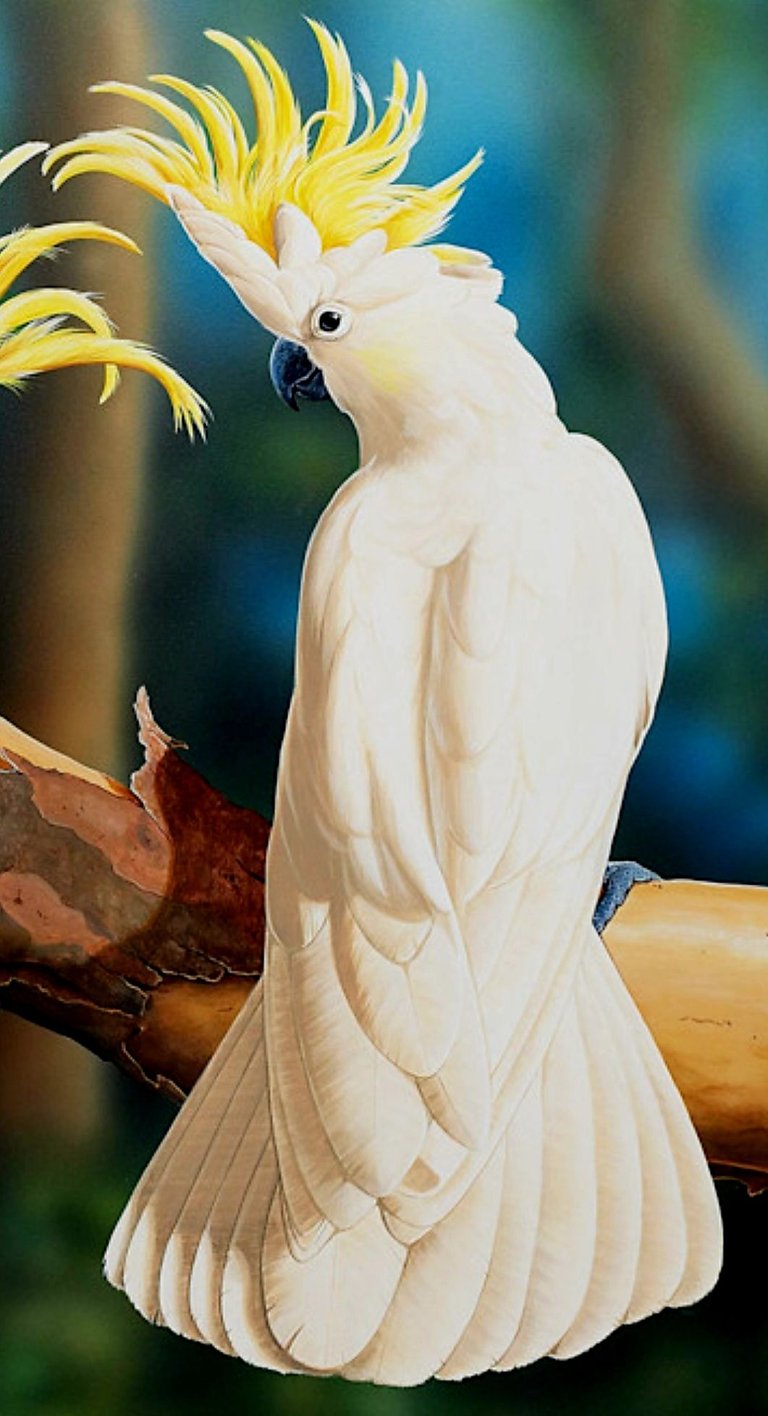
(C) Natalie Parker Prints Online
Stomping Ground
Our job for one week is to learn how to run a convenient/takeaway store in a remote Indigenous Community... in this case Kowanyama is our stomping ground for a super quick training session. So far we have seen friendly faces and a relaxed, super laid-back atmosphere. Unfortunately we arrived during 'sorry business' due to grandpa's funeral service down the street. Once this was done and dusted it was all hands on deck to get those pies, sausage rolls, cheese burgers and goodies heated and served to the wave of customers who obviously had worked up an appetite.
Within this community there are a number of children who attend public schooling. Compared to what you and I are used to, things are different here. Children are mostly picked up by school bus from their 3 bedroom home, where up to 24 people can live at anytime. Most of these kids are picked up dishevelled from lack of sleep, in pyjamas, and with empty tummies.
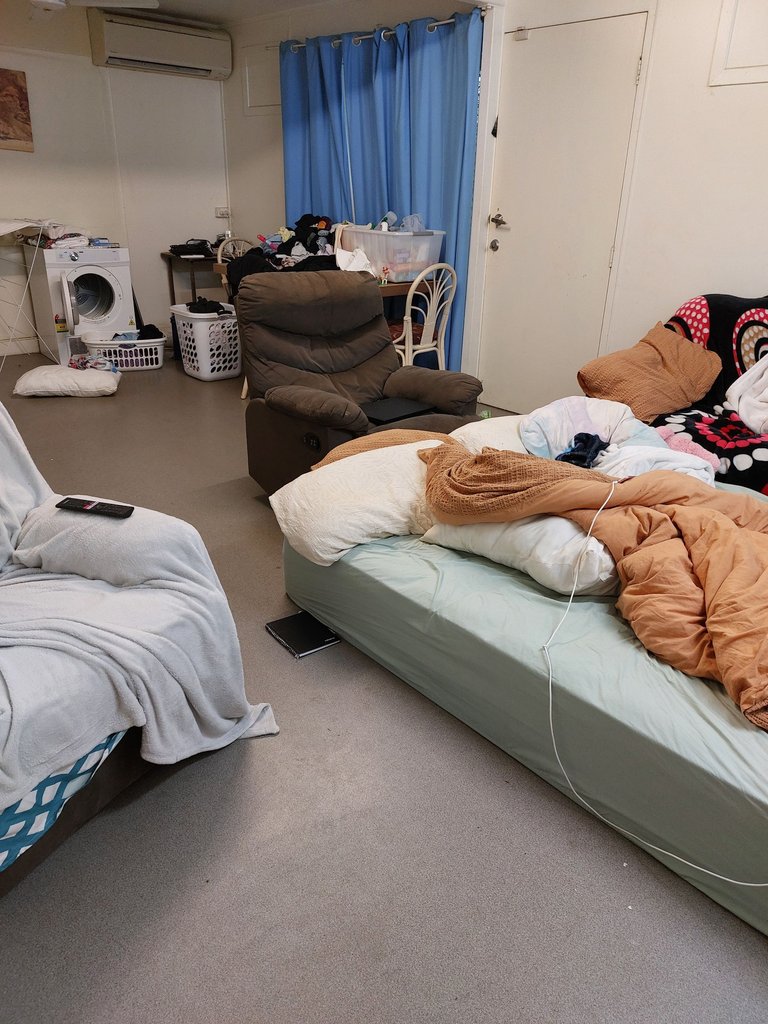
Due to overcrowding, many rooms in the homes are used for multiple purposes... sleeping on a mattress on the floor, watching tv, cooking, washing clothes, and eating.
Free Food for Kids
As the school bus pulls into the school grounds, a free hearty breakfast awaits them, followed by lunch, with snacks in-between. The free food is welcomed by many kids as parents, grandparents, or other family carers will often spend the bulk of their money on tobacco, alcohol, or drugs instead of groceries for the family.
Upon arrival kids change their clothes at school using the clothes brought with them in their bag or utilising clothes from a special box. Many kids in aboriginal or indigenous communities only attend school occasionally. A large number learn on the street, in the bush, or from grandparents who teach them hunting, fishing, or gathering bush tucker. I guess it's homeschooling with a cultural background that is unfamiliar to most of us. Within the community kids are taught to Respect Learning, Respect Community, and Respect Culture. We can clearly see these statements painted on walls, pillars, or signposted on posters.
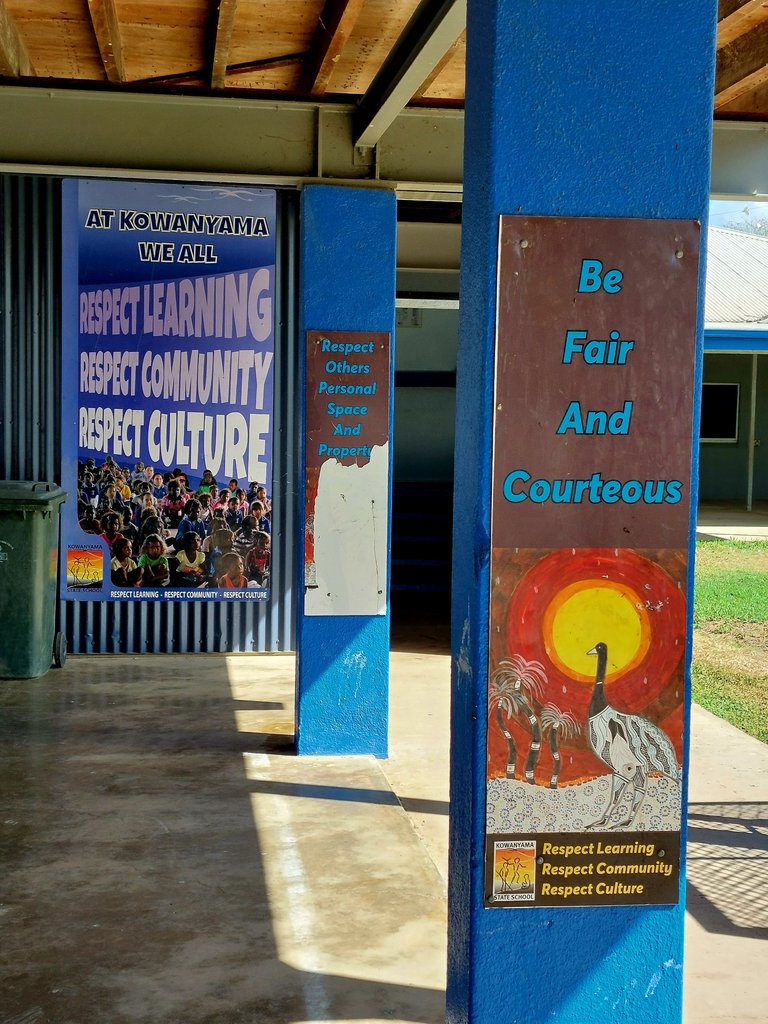
Education is priority here. Respect Learning, Respect Community, Respect Culture
Integration
A few homeschooling families also live in these communities where the children of doctors, nurses, and other health professionals do school of the air or they have a tutor living with them. Some integrate well with the community members while others stick to themselves for fear of diseases or due to trying to shield their children from issues such as domestic violence, drugs or alcohol abuse. I'm thinking that if you wanted to protect your children from this then you shouldn't have come here to work in the first place... but that's my opinion!
Being part of Community means you need to be able to interact with the people and integrate.
It's a fantastic opportunity for homeschooling kids here to learn indigenous culture and obtain first-hand experiences of life in the outback. Public school hours appear to be all over the place with very little regular set hours. Children are mostly barefoot, dressed in shorts and t-shirts with school sores spread on many children. One nurse tells me she's heartbroken as she's attending to some of the young children dying of heart disease. There is little comfort, luxury or relaxation in this small, dusty, busy community of 1500 people. People with medical emergencies are flown into the city of Cairns and feel very isolated from their homeland.
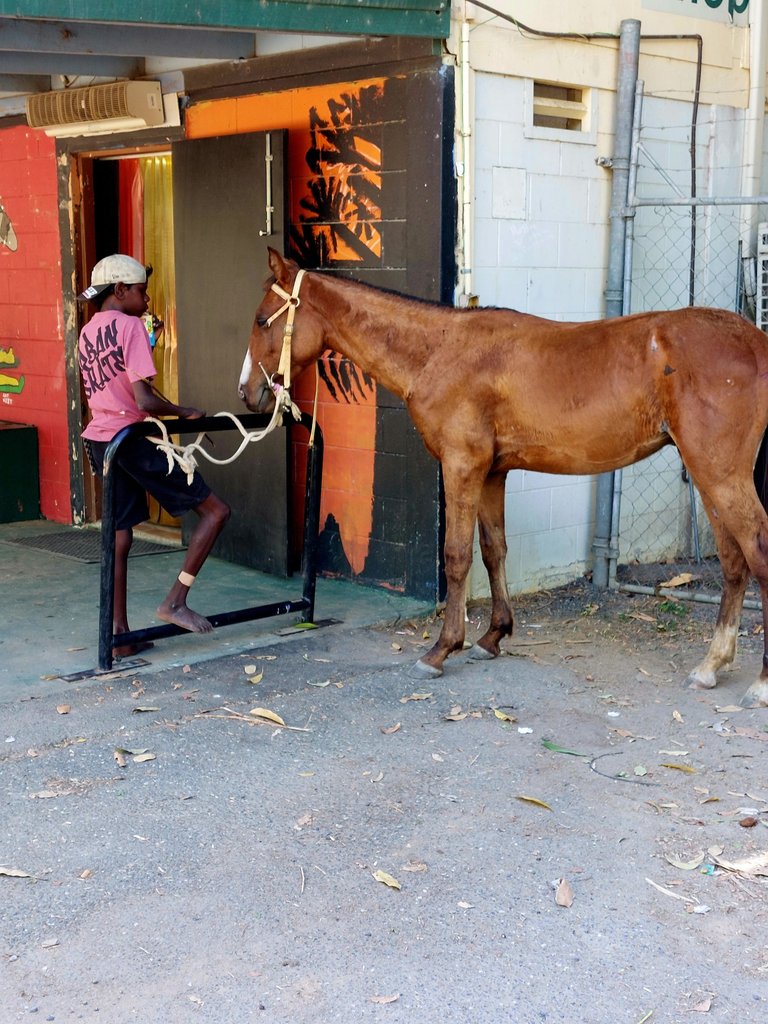
One lovely young boy caught my eye as he rode bareback on his horse to the local shop.
"Morning Miss," he chirps with a big grin on his face. Brandishing his own credit card he quickly purchases a shiny fishing lure and he's off fishing for the day. "No school," I ask.... "No miss, me go fishing, catch tha' barra." Agility must be his thing as he's off on his horse leaving me behind in a cloud of dust. Ask any of these kids where to fish, what type of lure to use, when to fish, and what bait to use and you're guaranteed a feed. I guess you don't learn that in the classroom!
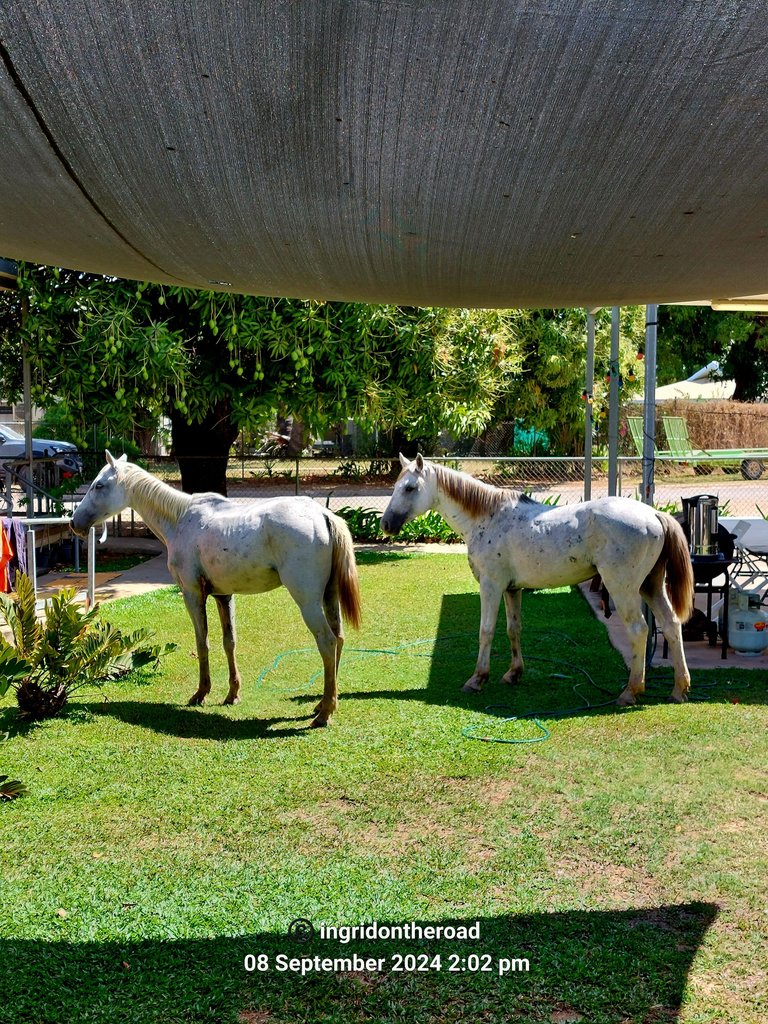
Wild horses... a stallion and a mare, visiting our Guesthouse accommodation, most have open wound sores and scars.
Story Telling
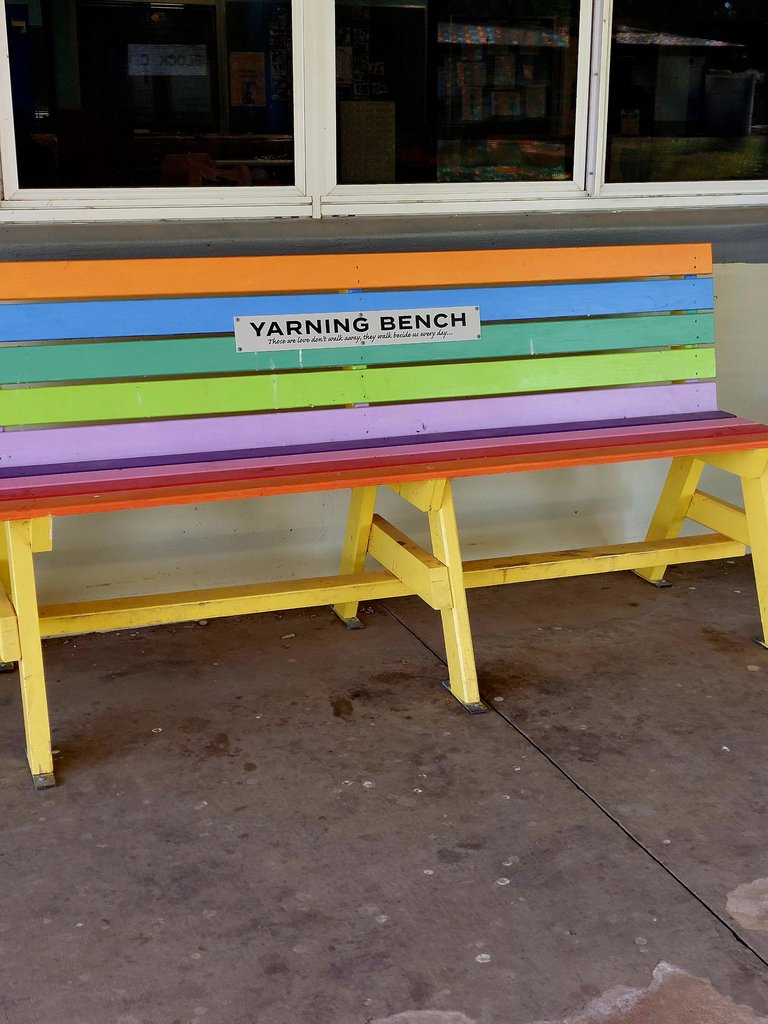
The Yarning Bench.
In Australian slang, having a yarn is having a chat. This bench is all about building respectful relationships.
The Yarning Bench is a colourful bench seat where young and old can sit and talk. Aboriginal Elders will tell stories to the younger generation while little kids brag about their breakfast, how the fight ended last night, or who stole what car again.
Reality meets surreal in places like this.
The bench has a slogan stating.... "Those we love don't walk away, they walk beside us everyday... This seat is part of their educational experience and if it could talk it would have tremendous stories to share. Wouldn't it be great if homeschool groups could create such a space when you come together for activities or learning sessions?
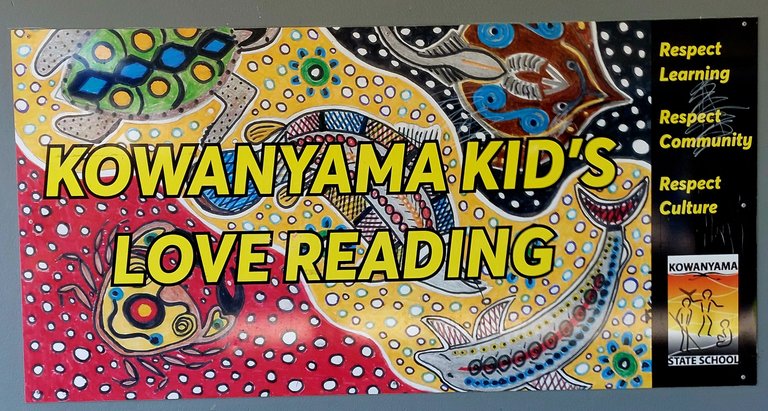
Teachers are always trying to encourage literacy and numeracy and learning to read is a priority for these children.
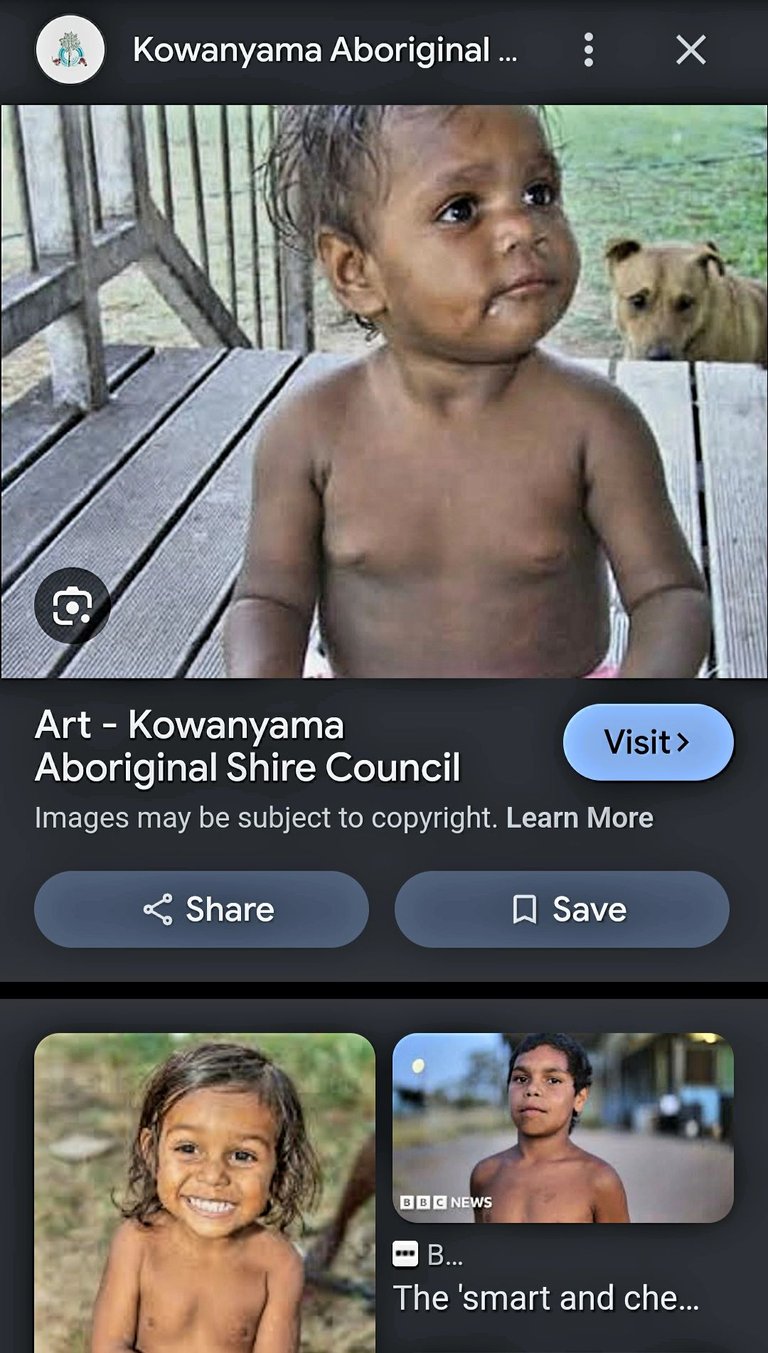
Kowanyama kids take life as it comes. Schooling is not on their priority list... food is!
(C) google.com/search?q=aboriginal+children+Kowanyama
Sugar
Health should be priority but unfortunately it's an uphill battle. Fresh produce is scarce and the little that comes in on the once a week delivery truck is quickly purchased by astute parents who know that tomorrow the shelves will be empty again. Plenty of tin food, frozen goods, and junk food lines the shop's aisles. No amount of money invested by governments to promote healthy foodstuffs has made an impact on the choice of food most people buy here. The choice is limited, distances of over 600 kilometres (one way) to the nearest city for supplies makes it extremely difficult and frustrating for many people. I guess that's the reality of living remote.
Sugar is the biggest problem facing people in this community with diabetes being the number one disease affecting the majority of residents here. Lollies and cool drinks are the biggest selling product next to fast food take-away and cigarettes. Alcohol is restricted here but still a big issue regardless.
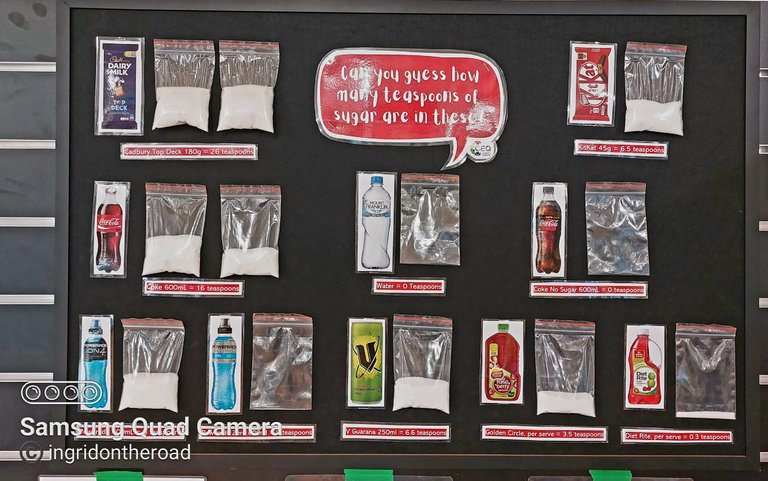
Not even a display of the actual amount of sugar in each product has persuaded the locals from refraining to buy it.
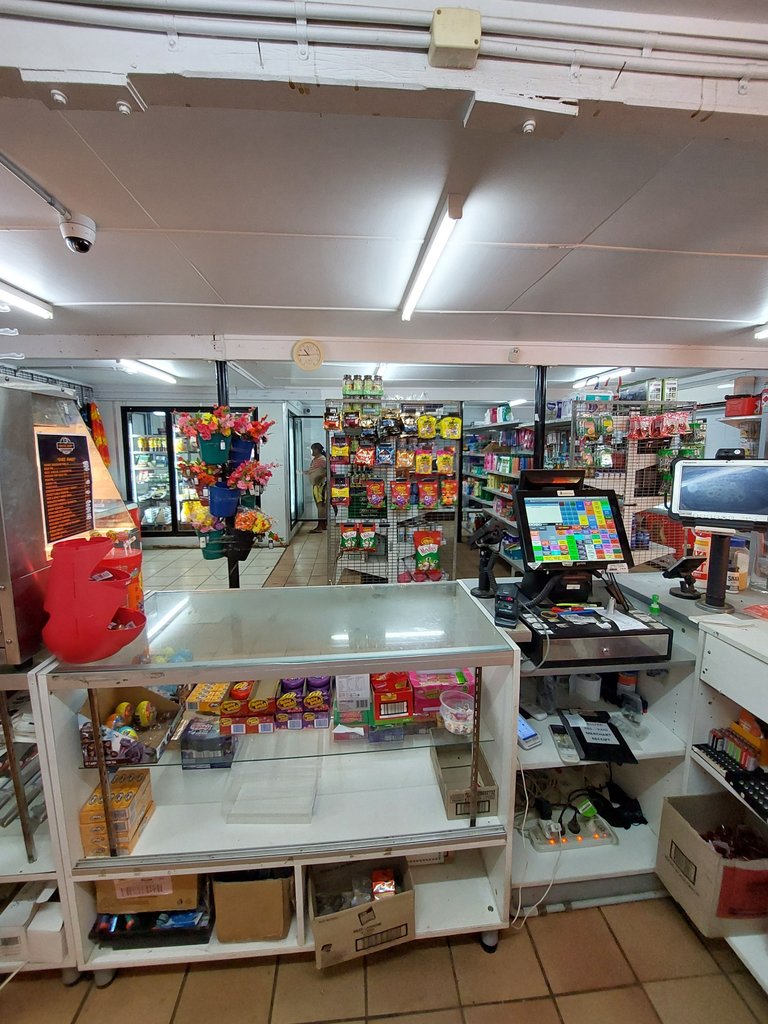
Establishing your vegetable garden is important in a remote community like Kowanyama. Fresh produce is scarce... even the flowers are fake!
Financing Homeschool on the Road
As homeschooling families move in and out of these communities they take with them memories of special people, amazing country and a little knowledge about Indigenous culture. Another thing most leave with is a puppy or an unwanted community dog. These dogs are literally everywhere, roaming the streets, full of worms and unwanted by the people. You'll see them wandering around shops begging for scraps of food.
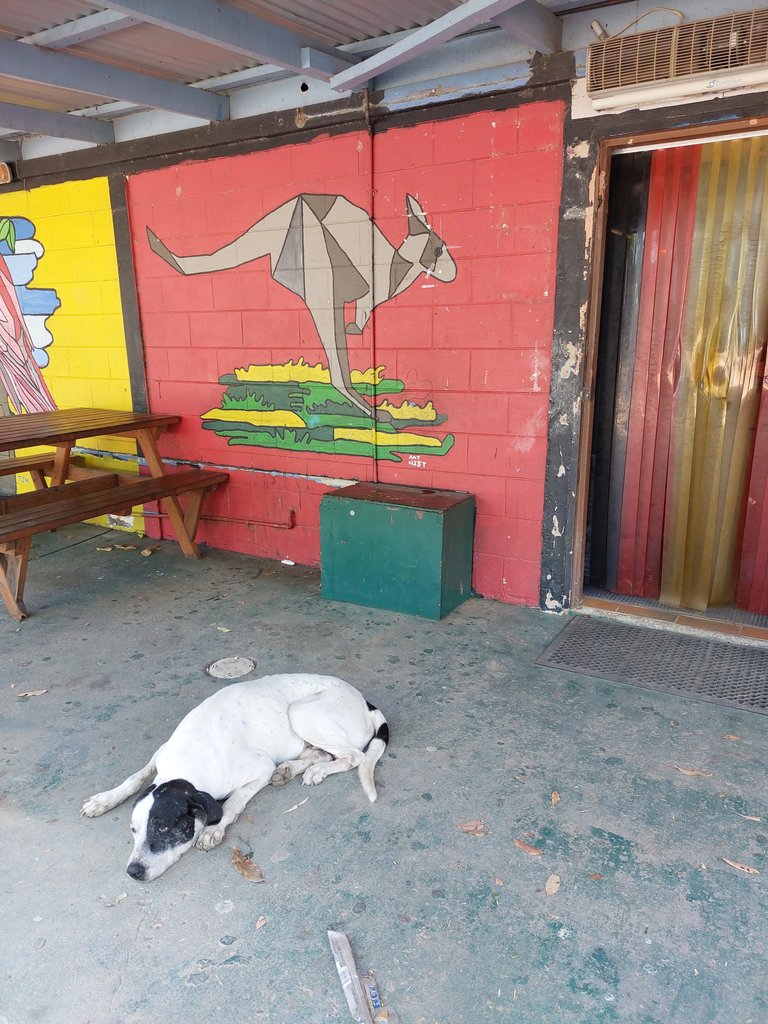
One of the many community dogs.
There are plenty of homeschooling families travelling Australia while teaching their kids on the road. I have encountered plenty of these families on my travels and it's great to see these kids learning about alternate ways of living. They travel great distances towing their caravan, or they're in a large bus with the beach, lake, forest, or dessert as their school desk.
The opportunities are endless and the learning is unlimited. Many travelling homeschool parents earn their income by working from home.... their home in this case being their caravan or bus. A laptop is their office and as long as they have internet access their job is waiting for them. It's a wonderful way of living for many of them and a fantastic opportunity for kids to break free from a school desk in a building. It's not something that everyone enjoys or is capable of doing, I must say.
Esther the Elder
Meeting some of the older generation is a highlight in these remote communities. As the elder Esther, relates her story of her schooling years, government removal of children and how they walked across the salt flats 60 years ago to visit the neighbouring school for a fishing trip, I am impressed about how tough these kids were back then. It's a 95 kilometres walk, nothing but shrubs, salt plains, crocodile infested rivers, and no shops to buy food. They hunted, fished and gathered bush tucker on their journey.
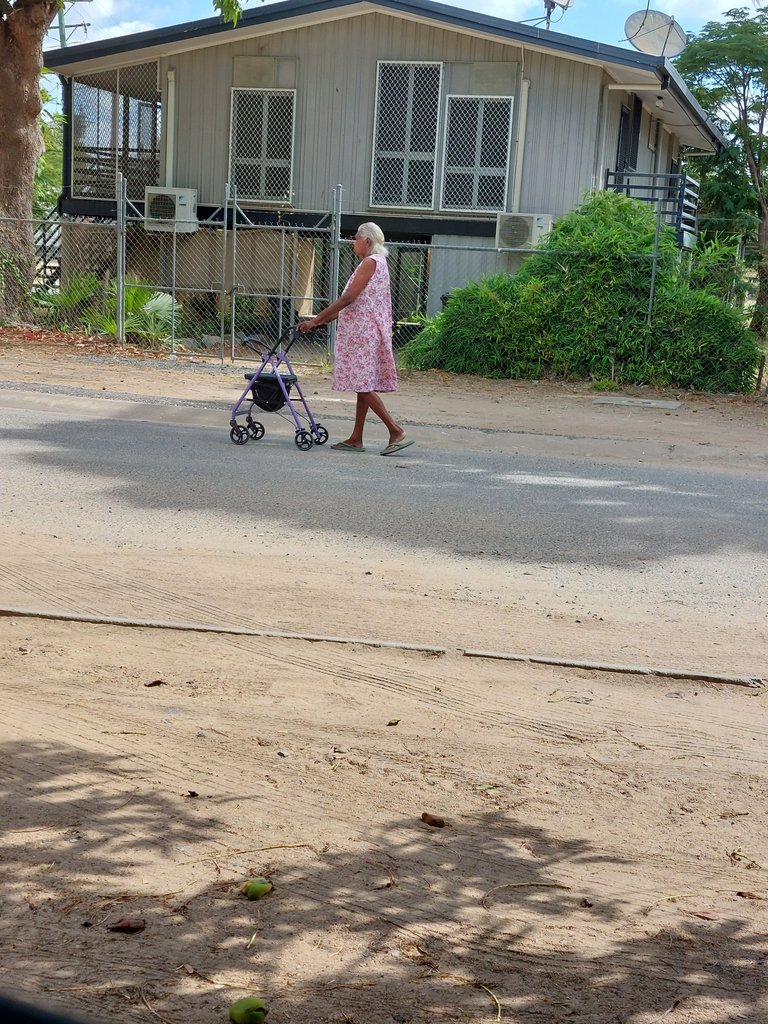
These days Esther just aimlessly wanders the streets of Kowanyama, happy to chat to anyone willing to listen.
Goodbye Kowanyama
As the week draws to a close, we will fly out again as the only dirt road in (or unsealed road) is severely corrugated and full of bulldust holes. The delivery truck somehow manages to faithfully get here though and I respect these truckies for their dedication because without them this remote indigenous community would go hungry. During wet season the roads are under water and this community, like so many others, are cut off for several months, until the dry season starts again. Medical supplies, food, potable water, and mail is flown in by small aeroplanes. Driving in or out is not possible and the only method of transport is by plane.
This week has been a huge learning curb for me as I realise how privileged we all are living and working in areas where isolation and lack of facilities is generally not an issue. I also realise that my homeschool journey with my children was quite different compared to those here. Not so much limited but under completely different circumstances. It's been an absolute delight to have the opportunity to continue learning and experiencing remote living and meeting the brave people like Esther who live, breathe, and walk this amazing country.
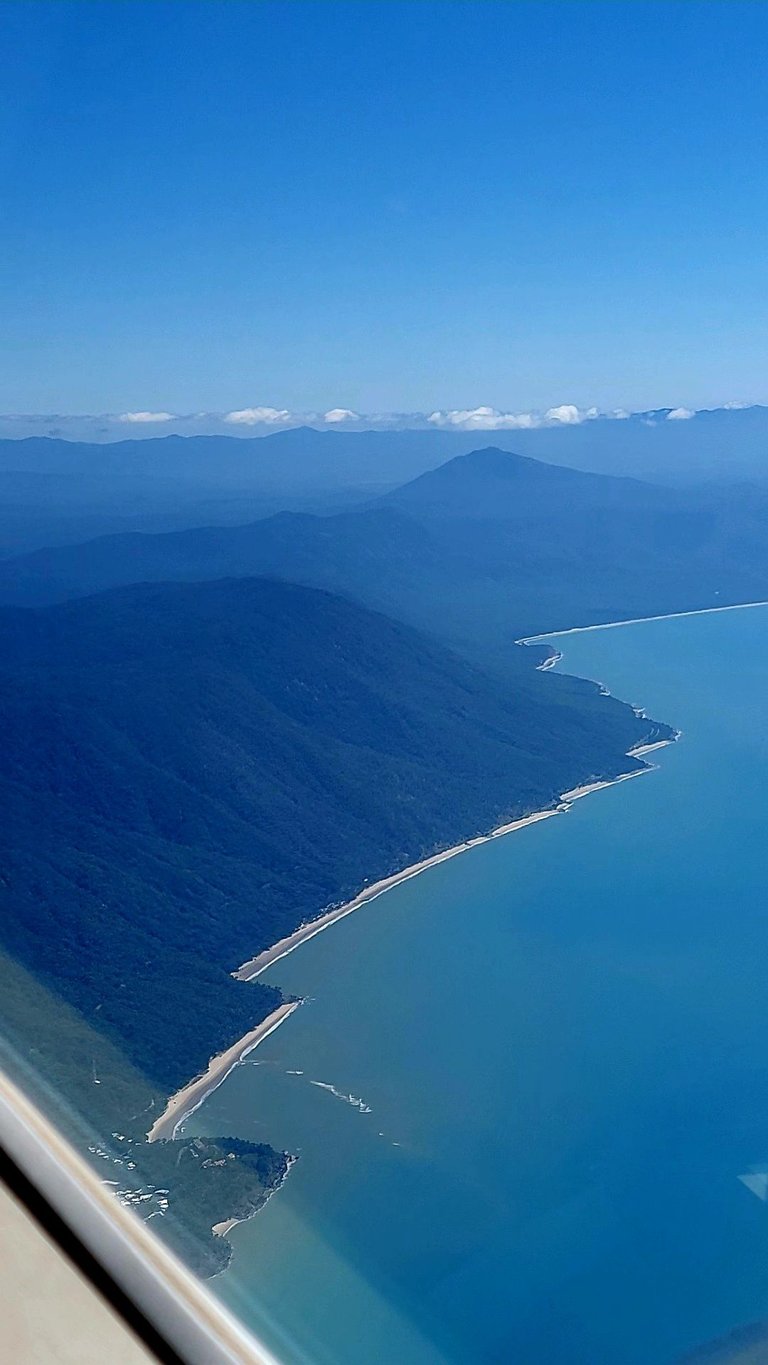
East coast Cape York Peninsula Queensland
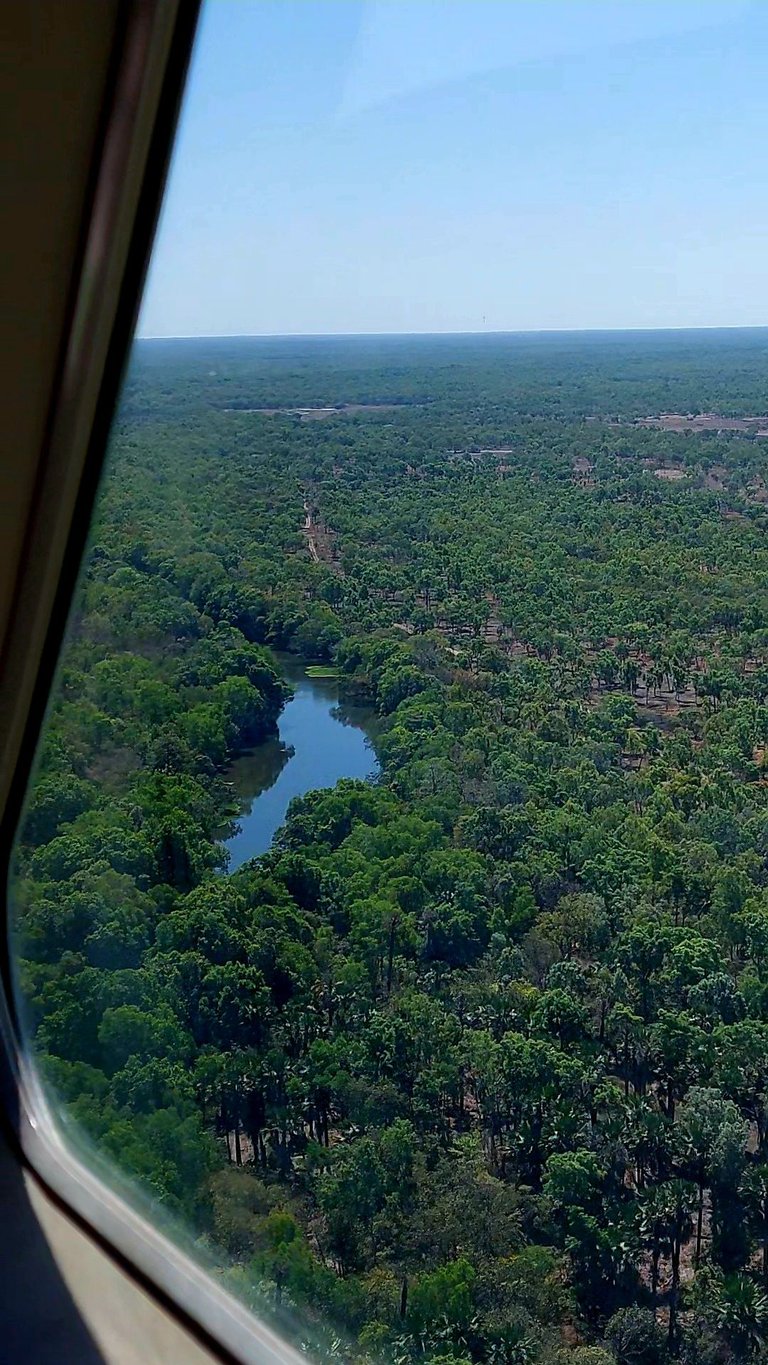
Mighty Creek Kowanyama
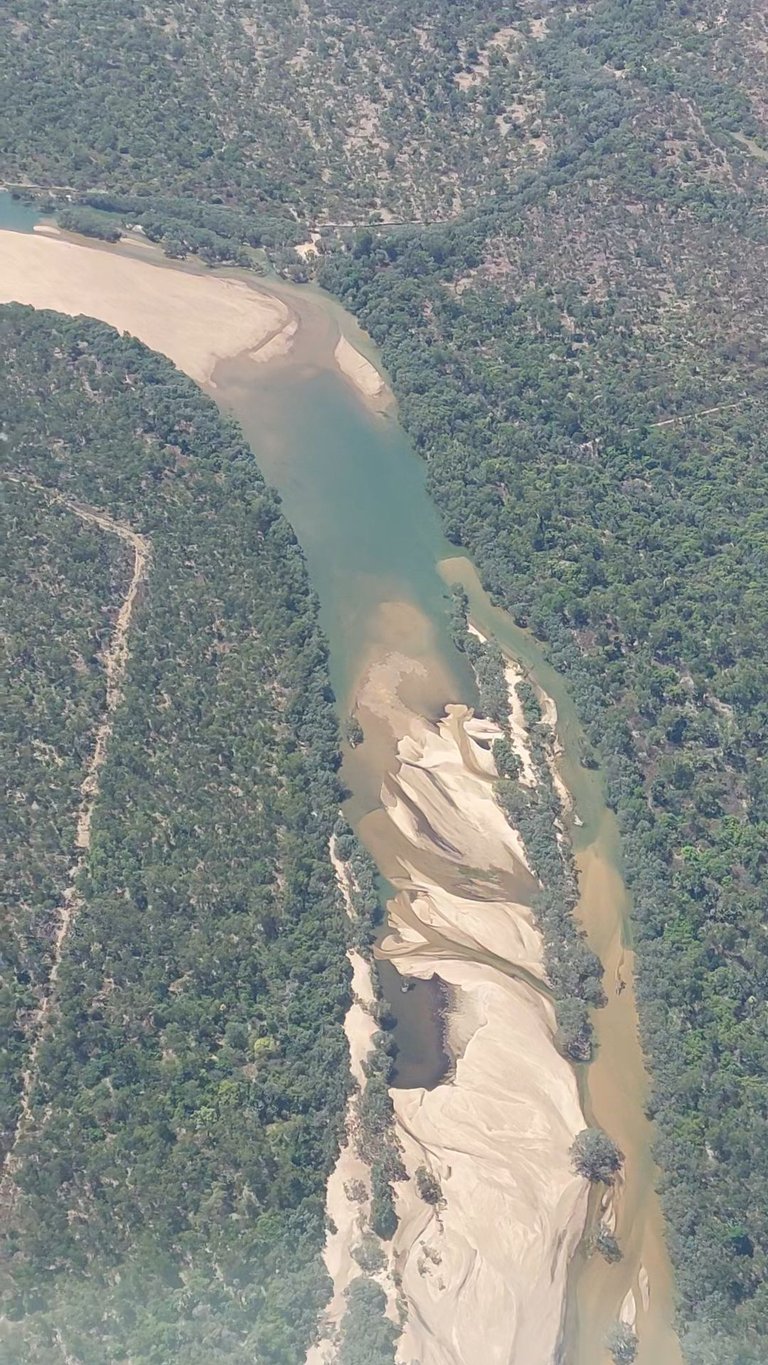
One of the many rivers 'Elder Esther' would have crossed as a child. Easily crossed in dry season but roaring and full of crocodiles in wet season.
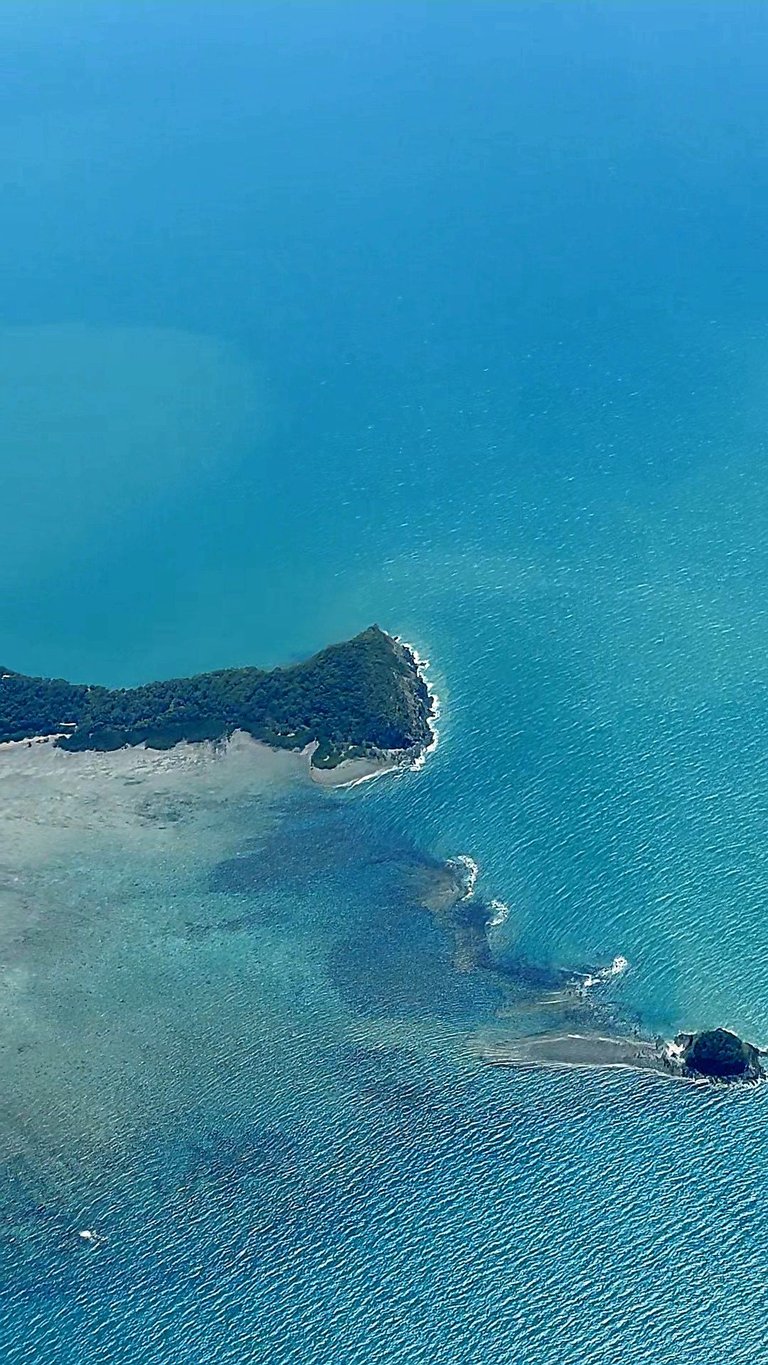
Beautiful scenery as we depart on our small 12 seater plane.
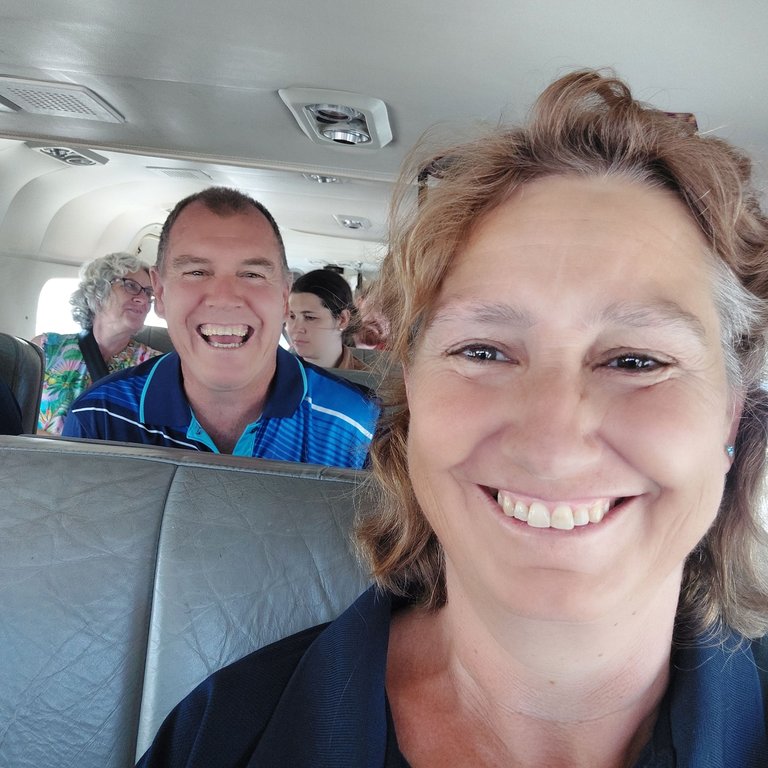
Excited to explore a different part of the world.
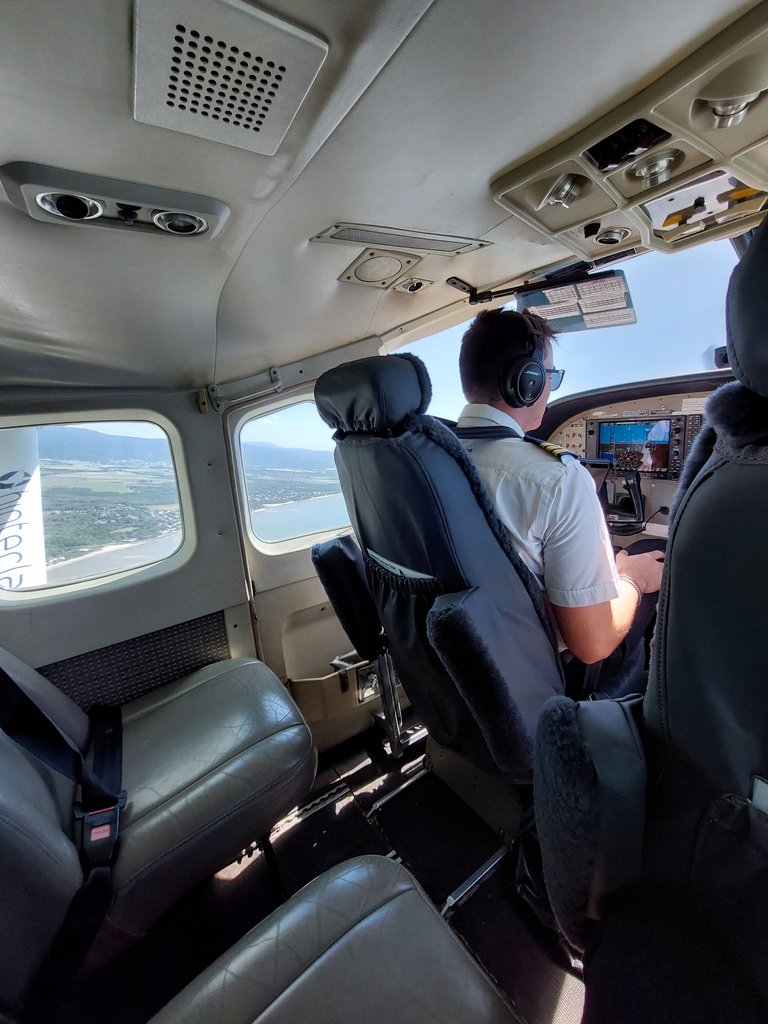
A lot of trust is placed in the skilled pilots who have a lot of responsibility for their passengers and cargo.
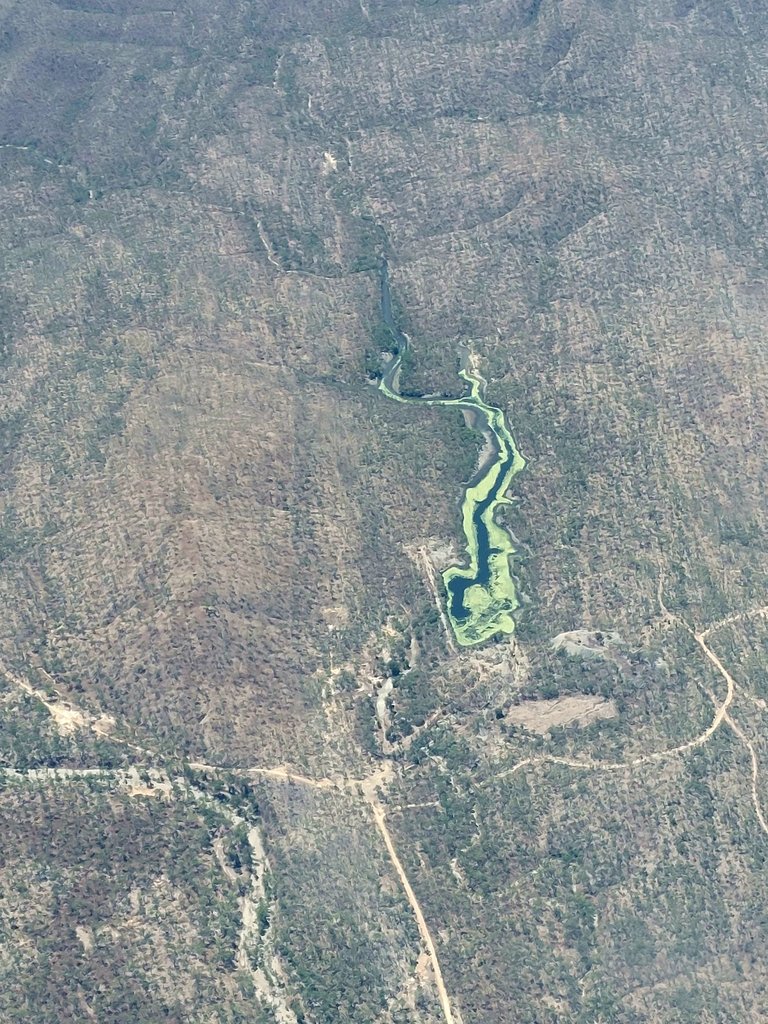
Aerial view of Kowanyama country.
Homeschool Project Ideas 💡 🤔
[1]
Regardless of where you live I'm sure there are remote communities somewhere. Choose one community and learn how these people live, housing situations, medical facilities, schooling, food supplies, cultural differences and social aspects of traditional family values within these small, close-knit community groups.
[2]
Research the amount of sugar in food and drink products regularly consumed and list the health issues associated with it.
[3]
Discuss or research health and hygiene issues and the reasons why we should practice good hygiene.
[4]
Do a project on the logistics of building, servicing and maintaining a remote community. Include building supplies, food, delivery costs, medical, and schooling.
©️ingridontheroadPhotos and written work is my own unless specified otherwise... https://www.teachingtreasures.com.au
That must have been an amazing experience, but a little sad too. I've recently been listening to podcasts on how our modern diets are causing diabetes at phenomenal rates and that's in places where we have access to a much wider variety of foods if we choose. That said, even supposedly healthy foods are often full of sugar, so we think we are eating right, but forgetting to check labels.